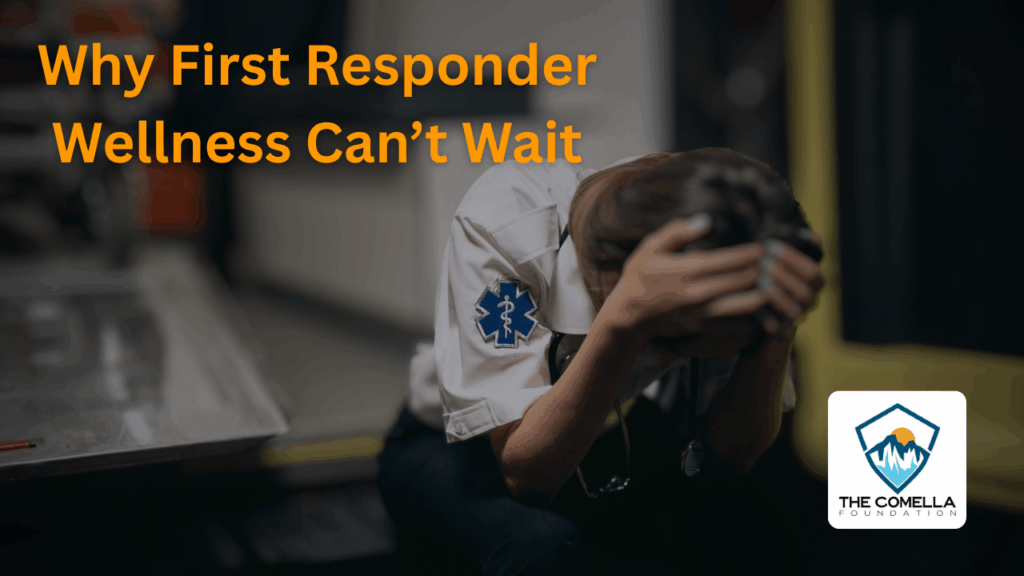
First responder wellness reduces stress, injuries, and burnout. Learn why it matters for departments and how to bring effective support to your team
Police officers, firefighters, EMS personnel, and other frontline professionals carry more than heavy gear—they carry the responsibility of keeping our communities safe. But who carries them?
Without dedicated attention to first responder wellness, stress and exhaustion quietly take their toll—affecting health, decision-making, and job satisfaction. For department leaders, this also means rising insurance costs, higher turnover, and decreased performance across the team.
Now more than ever, wellness isn’t just a perk—it’s a necessity for every first responder and every department.
The Hidden Costs of Stress on First Responders
First responders face unique challenges:
- High Stress Levels: Constant exposure to emergencies keeps the nervous system in overdrive.
- Physical Strain: Sleep disruptions, heavy lifting, and long shifts create lasting wear and tear.
- Mental Health Risks: Studies show first responders face higher rates of PTSD, depression, and burnout.
- Ripple Effects: Strained first responders can mean strained families, higher absenteeism, and increased liability for departments.
For decision-makers, this translates into lower morale, recruitment struggles, and rising costs. For individuals, it often feels like there’s no way to reset and recover.
Here are a couple articles that come from a psychology and medical perspective of
The Benefits of Wellness Programs for Departments and Individuals
Investing in first responder wellness brings measurable benefits:
- Sharper Decision Making – Calm responders de-escalate situations more effectively which leads to better and more sustainable community relations.
- Reduced Injuries & Sick Days – Movement and recovery tools lower physical strain giving the body a more flexible and youthful feeling.
- Stronger Mental Resilience – Simple techniques help manage anxiety and restore balance as the mind is our most powerful tool to combat stress.
- Cost Savings for Departments – Less turnover, fewer claims, and healthier staff. Let’s face it, for municipalities it’s ultimately about saving taxpayer money. By keeping seasoned veterans mentally sharp and less prone to injury we are saving goverment money across the board.
- Improved Job Satisfaction – Responders feel supported, valued, and more capable. When we think about this several layers deep, wouldn’t we want someone who feels appreciated by the very community they are their to support, to be there when we need them the most?
Practical Wellness Tools That Work in the Field
The best programs don’t require expensive equipment or hours of training. They give responders skills they can use right away:
- Movement & Mobility Training – To reduce stiffness (shorten recovery time) and prevent injury.
- Breathing Techniques – Quick resets to bring the nervous system back to calm that can be done almost anytime and anywhere.
- Relaxation & Recovery Practices – Short routines that fit into any shift. The key here is practicality! If stress can raise in a moment, we can provide the body tools to reduce stress the next moment.
- Team-Based Support – Small group training builds accountability and resilience. This allows
When implemented, these practices improve both individual performance and department-wide culture.
Why Wellness Matters Now More Than Ever
The demands on public safety professionals are only increasing. From community tensions to natural disasters, the weight is heavier than ever. Ignoring wellness leaves both responders and their departments vulnerable.
When these first responders answer a 911, many times our lives our in their hands. Their ability to be “on point” during a crisis situation and make critical decisions under tremendous pressure can mean the difference of life or death for a member of the public. We as a society owe it to these brave men and women to make sure their health and well being is looked after when they are “answering the call.” It’s the least we can do…
Many of these first responders look forward to a couple of weeks per year in the summer to take a vacation to “unwind.” While they find their nervous systems under incredible stress for the other 50 weeks a year and their body is just beginning to come down from all that stress when the vacation is over. This cycle is both unsustainable and unacceptable. We as a society can do better, we just need to start inserting simple easy to implement “stress hacks” that allows for a first responder to have more capacity to regulate their nervous system multiple times per day.
Supporting wellness means creating resilient individuals and resilient departments—ready to serve at their best while protecting their long-term health.
Take the Next Step: A 20-Minute Discovery Call
At The Comella Foundation, our Operation: Stress Shield program trains first responders, veterans, and active military in proven tools for stress reduction, pain relief, and resilience.
- For Department Heads: Learn how to bring a customized wellness program to your team to improve performance, reduce insurance costs, and strengthen retention.
- For Individual First Responders: Discover simple, effective practices you can use right away to reset stress and restore balance.
👉 Schedule a FREE 20-Minute Discovery Call to explore how these tools can support your department—or your own personal wellness.
Because when first responders are strong, calm, and resilient, everyone wins.
